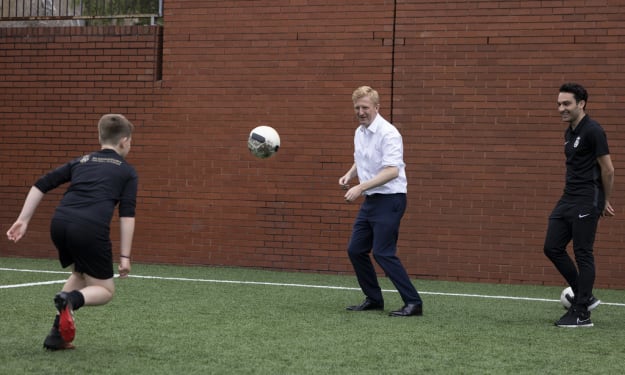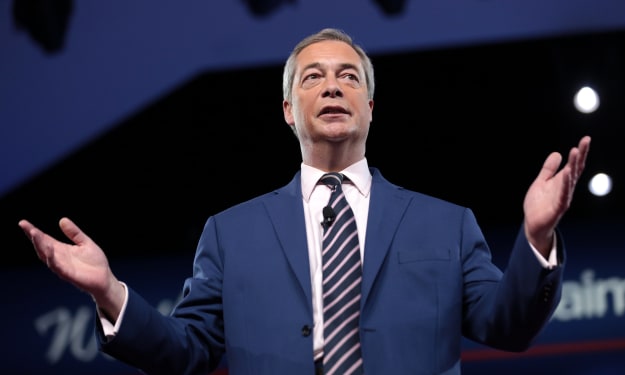The Impact of Social media on Human Relationships and Politics in the 21st Century
Maybe it was the phone

Technological innovations have revolutionized how people communicate and connect, and even interact with the world. It’s completely changed the landscape of building friendships, and romantic relationships and even our political landscape.
The communication revolution as some would call it, because social media platforms, such as Facebook, Instagram, and Snapchat, have become the largest tools for communication among most of the youth. According to Pew Research, 81% of American teenagers aged 13-17 use social media platforms regularly, highlighting its influence. While these platforms provide instant communication and sustain long-distance relationships, concerns are growing over their impact on interpersonal connections. Face-to-face interactions are increasingly replaced by digital exchanges and video calls, altering traditional social dynamics. These platforms also have many mental health implications, studies indicate a correlation between excessive social media use and negative mental health outcomes among the youth, including increased rates of anxiety, depression, and feelings of isolation. The pressure to maintain a curated online image heightens these issues, posing a huge threat for personal identity development.
On the plus side, social media has raised political engagement. It has shockingly empowered youth to engage politically like never before. Movements such as #Backtheblue and #ClimateStrike has gained momentum through social media platforms, illustrating its role in amplifying voices and ease of activism, reshaping the way our lawmakers have to engage with us, by tagging them in posts, showing them that we see what they are doing and that they can’t shut us down or scrub the newscycle of their wrongdoings. They can also now engage directly with their constituents and respond to movements in real-time.
Moreover, political campaigns now use social media to bypass traditional media channels, a tactic exemplified by Barack Obama’s pioneering the use of technology during his presidential bid, he posted youtube videos and was the first to take most of his donations online. Donald Trump similarly capitalized on Twitter to circumvent journalistic scrutiny and directly engage with voters, fundamentally altering campaign strategies and public discourse.
The direct communication with supporters and opposition really shined in the 2016 campaigns. Donald Trump's use of Twitter during his presidential campaigns is truly a perfect example of how political figures can leverage social media to campaign. Trump demonstrated this by turning himself into arguably one of the biggest “memes” on social media, and he made sure his name was constantly in the news. It didn't matter why he was on the news, he just made sure to stay there by tweeting whatever he was thinking out there.
This also showcased information dissemination, social media platforms have given us access to political information and real-time updates on campaign developments. However, they have also been criticized for amplifying misinformation and contributing to polarized political environments. Most people end up in what can only be classified as an echo chamber, if you follow one side too closely, you will only ever hear that side. You won’t know what the other parties are up to. While amplifying numerous voices, and facilitating public discussion, both of which are fantastic things. There is no good way to mitigate the spread of misinformation and combate online extremism or truly even exit the algorithmic echo chamber you end up in following the discourse.
Long story short, maybe the adults were right, it might just be that phone. Technology's impact on human relationships, politics, and the experiences of youth in the 21st century is a double-edged sword. While social media has connected individuals globally and empowered a immense amount of political activism, it has also introduced a ton of new challenges, from mental health concerns among youth to the polarization of political discourse. Moving forward, addressing these challenges requires thoughtful regulation, investment in digital literacy education, and a commitment to true debates and thoughtful discussion, both online and in person. By navigating these complexities with the future in mind and responsibility, society can maximize the benefits of social media while safeguarding the well-being of the youth and democratic participation of its citizens
About the Creator
Alyce Willow
Hello, I am a young journalist and poet. I have dedicated the last few years to honing my writing skills and have found joy in using words to express my thoughts and emotions. Thank you for taking the time to read about my hyperfixations.
Enjoyed the story? Support the Creator.
Subscribe for free to receive all their stories in your feed. You could also pledge your support or give them a one-off tip, letting them know you appreciate their work.






Comments (1)
Nice. The dual impact of social media on human relationships and politics is obvious.